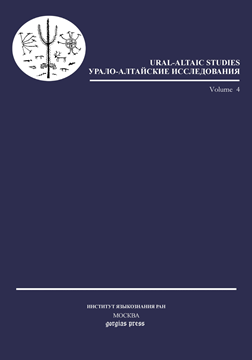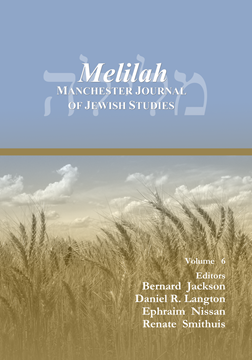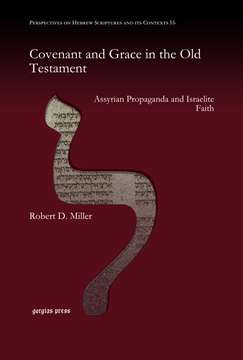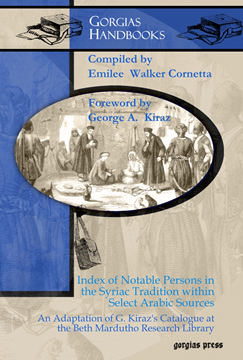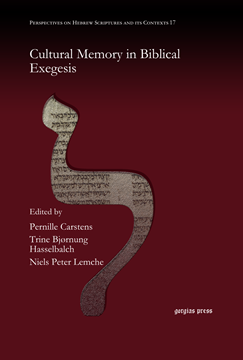Literary Interactions between Syriac and Armenian
Series: Analecta Gorgiana 1094
ISBN: 978-1-4632-0142-5
Thomson surveyed Syriac literary influence on Armenian Christianity from the time of early missionary activity to the middle ages. Evidence suggests that Armenian Christians are greatly indebted to Syriac contributions on sainthood and theology, but less so for historical writing.
$34.00 (USD) $20.40 (USD)
Ural-Altaic Studies 1 (4) 2011
Editor Maria Amelina
Series: Ural-Altaic Studies 4
ISBN: 978-1-4632-0143-2
The journal "Ural-Altaic studies" is concerned with linguistic matters, connected with the Uralic and Altaic languages. It is bilingual; all papers are published in both Russian and English.
$67.00 (USD) $40.20 (USD)
Manchester Journal of Jewish Studies (2009)
ISBN: 978-1-4632-0154-8
Melilah is an interdisciplinary peer-reviewed journal concerned with Jewish law, history, literature, religion, culture and thought in the ancient, medieval and modern eras. Contributors (2009) include Cynthia Crewe (abstract only), Dvir Abramovich, Phillip Mendes, and Elliot Cohen.
$39.00 (USD) $23.40 (USD)
Covenant and Grace in the Old Testament
Assyrian Propaganda and Israelite Faith
ISBN: 978-1-60724-015-0
This book examines the Old Testament language about Israel’s relationship with God in the light of Assyrian royal propaganda. Unpacking this language’s meaning in both Assyrian and biblical contexts, it shows Israel borrowed language from Assyrian vassal treaties to describe its covenant with God, and this book reveals what “covenant” meant, and that it is not “covenant” at all, but “grace.” The broader theological implications of this discovery are explored in dialogue with contemporary theologians. The book takes seriously the study of text in its ancient context in order to highlight the theological content and its modern relevance.
$166.00 (USD) $99.60 (USD)
Journal for Late Antique Religion and Culture
ISBN: 978-1-4632-0147-0
The Journal for Late Antique Religion and Culture (JLARC) is a peer-reviewed free-access online journal edited by members of the Cardiff Centre for Late Antique Religion and Culture (CLARC) and published by Cardiff University (http://www.cardiff.ac.uk/clarc).
$42.00 (USD) $25.20 (USD)
Journal for Late Antique Religion and Culture
ISBN: 978-1-4632-0148-7
The Journal for Late Antique Religion and Culture (JLARC) is a peer-reviewed free-access online journal edited by members of the Cardiff Centre for Late Antique Religion and Culture (CLARC) and published by Cardiff University (http://www.cardiff.ac.uk/clarc).
$49.00 (USD) $29.40 (USD)
Journal for Late Antique Religion and Culture
ISBN: 978-1-4632-0149-4
The Journal for Late Antique Religion and Culture (JLARC) is a peer-reviewed free-access online journal edited by members of the Cardiff Centre for Late Antique Religion and Culture (CLARC) and published by Cardiff University (http://www.cardiff.ac.uk/clarc).
$57.00 (USD) $34.20 (USD)
Keter Shem Tov
Essays on the Dead Sea Scrolls in Memory of Alan Crown
Edited by Shani Tzoref & Ian Young
ISBN: 978-1-61143-866-6
This eclectic collection contains 16 articles on a variety of topics within Qumran Studies from a conference held in memory of the late Professor Alan Crown. Essays cover the impact of the Qumran discoveries on the study of the Hebrew Bible and the New Testament to the study of the scrolls themselves and the community organizations presupposed in them, focusing as well on topics as diverse as sexuality, scribal practice and the attitude to the Temple in the scrolls.
$184.00 (USD) $110.40 (USD)
Index of Notable Persons in the Syriac Tradition within Select Arabic Sources
An Adaptation of G. Kiraz’s Catalogue at the Beth Mardutho Research Library
Compiled by Emilee Walker Cornetta; Foreword by George Anton Kiraz
Series: Gorgias Handbooks 24
ISBN: 978-1-4632-0162-3
This volume contains the contents of George Kiraz’s catalogue of over 1300 people and places related to the Syriac tradition, expanded to include Latin names and citations as well as references to the Gorgias Encyclopedic Dictionary of the Syriac Heritage.
$106.00 (USD) $63.60 (USD)
Cultural Memory in Biblical Exegesis
ISBN: 978-1-61719-165-7
Cultural memory is the shared reproduction and recollection of what has been learned and retained, normally treated as “the cultural heritage”. The purpose of this book, the first product of the research program Cultural Memory in Biblical Exegesis, is to study how memory is inscribed and embodied in biblical culture and its surrounding area. The essays in this volume seek to open new investigations into cultural memory in biblical and cognate studies, and to include a plethora of methods and perspectives such as the relationship between cultural memory approach and post-colonialism, globalism and epistemology.
$208.00 (USD) $124.80 (USD)

